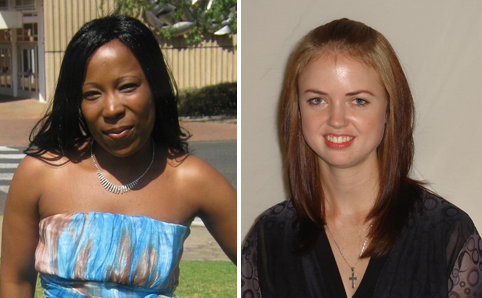 |
|
Aquinetta Ntungwana and Maryke du Plessis
|
Two students from our university, Maryke du Plessis and Aquinetta Ntungwana, who are enrolled for Psychology and Humanities, respectively, were awarded bursaries of R15 000 each from PPS. They were two of ten outstanding students in South Africa who have been selected for these bursaries.
PPS, the leading South African specialist financial services provider to graduate professionals, has awarded bursaries totalling R150 000. This is part of an ongoing effort to provide much-needed financial assistance to university students across the country.
According to Mike Jackson, Chief Executive at PPS, the bursaries play an important role in addressing South Africa’s skills shortages. “Given the severe skills constraints we are currently experiencing in South Africa in a range of professions, it is essential that talented students, who through no fault of their own may not be able to afford education, are given the same opportunities as their peers.”